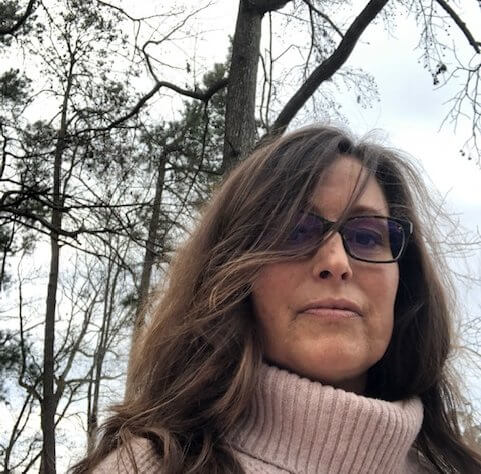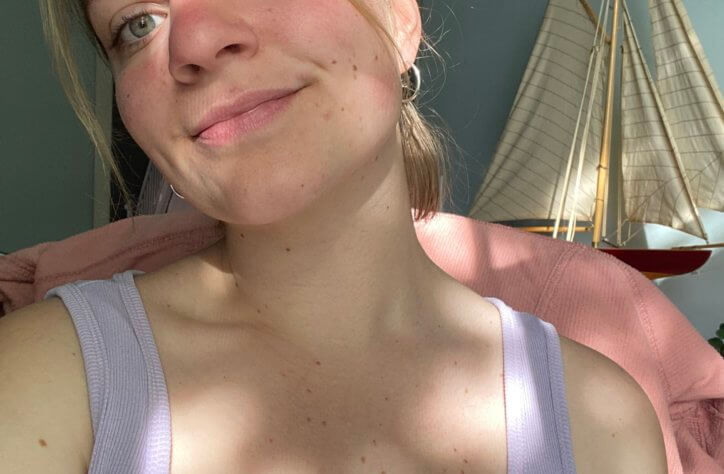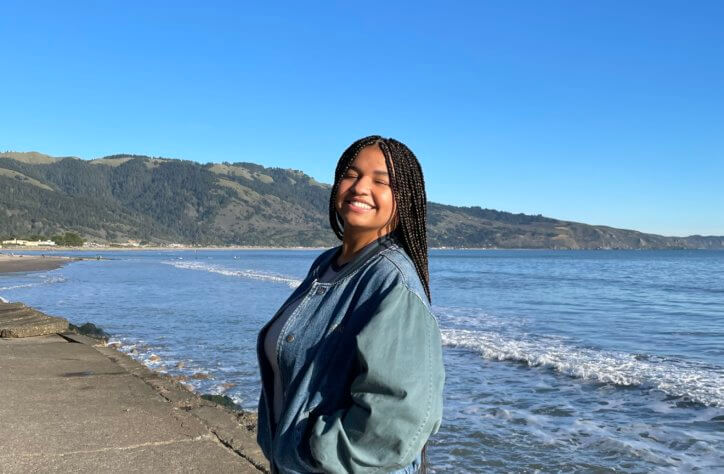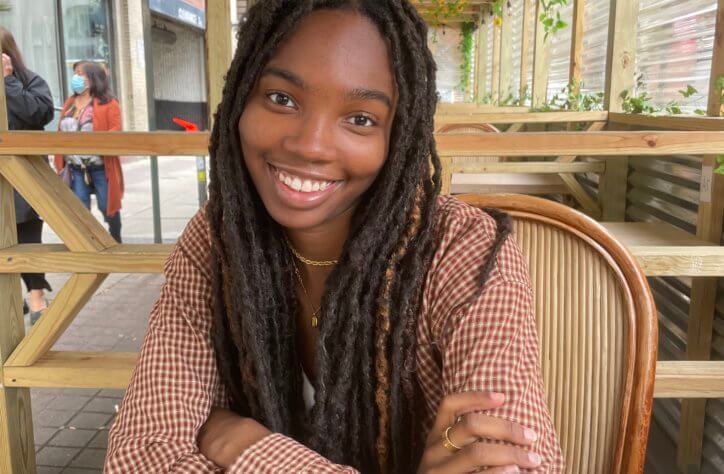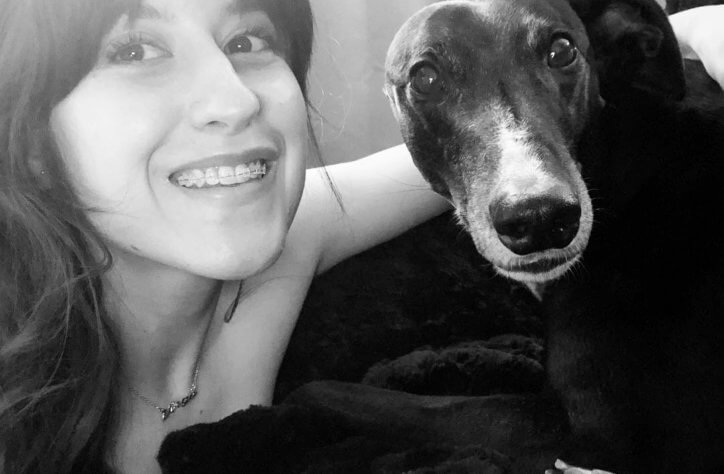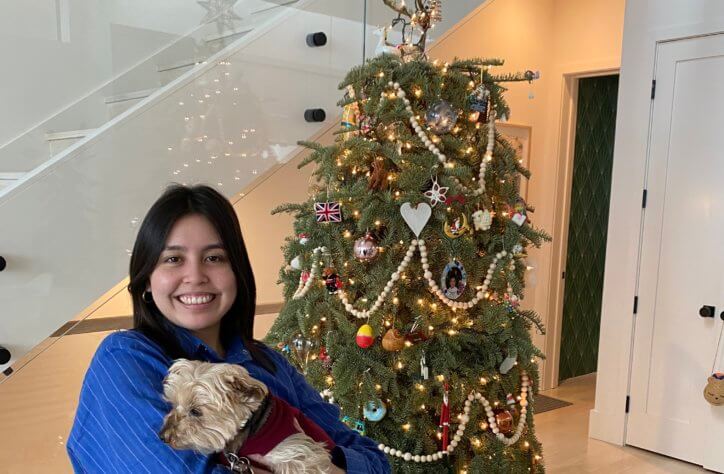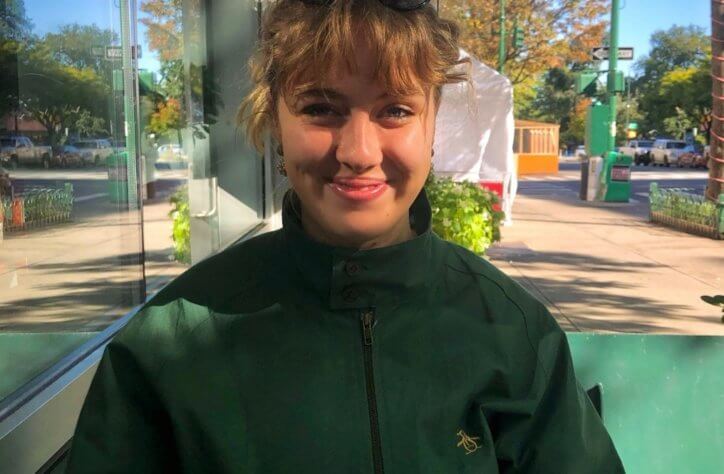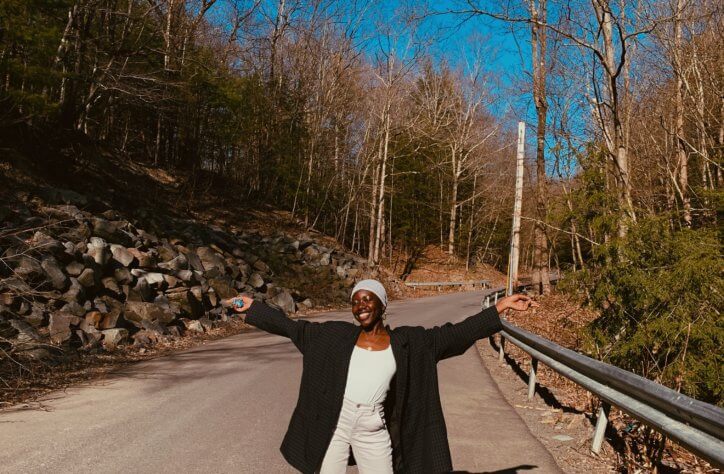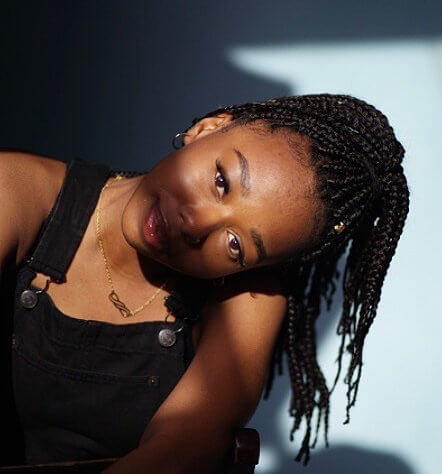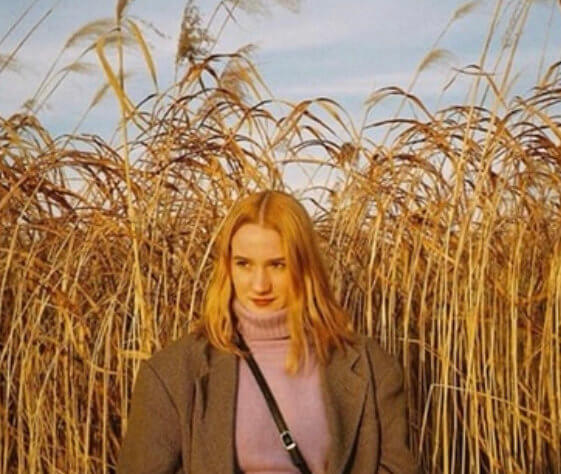Growing up I experienced a lot of death. My twin brother, my dad, both grandads and my uncle all died before I was legally a ‘grown up’. One by one, year by year – I lost most of the men in my life in my teenage years. In a weird twist of fate I said goodbye to my terminally ill grandad the night before I left for university – he died the following day. From the day I moved out, I haven’t lost anyone to death since.
It’s only in recent years that I’ve been able to recognise and process exactly how much these two life phases has made me who I am. It’s the basis of some of the things I like most about myself, and also the things I have had to work hardest on. There’s been a lot of positives – all that loss so early on taught me what’s important and how to take a step back. It taught me how to be calm and it made me passionate about the things (and people) I love. It made me resilient, quick to forgive and it gave me an understanding of people and their weaknesses.
Our ship was kept completely afloat throughout that time by incredibly strong women and I learnt a lot of life lessons from them at that time. Battle scars are scars to be proud of and I’m truly proud of ours. It’s only now that I look back that I realise as with everything, grief and its scars are layered and complicated – and as I’ve lived with them, I’ve learnt a lot from myself too.
It can’t be fixed, so you have to be really patient
I broke all of the long bones in my foot 10 years ago and was amazed to find out from the x-ray that bones don’t heal. Broken bones don’t have a memory that makes them spring back – they’re held still in a cast for long enough so that your body creates a mass that wraps round them, which hardens to become bone over time. I think that’s quite a good metaphor for grief. It takes time for the new bone to grow – it’s a completely new shape, it’s evolved and after a while, it’s only you and those who were there that know it’s changed.
It’s okay to feel like you’re acting – your grief will find you.
When I was growing up I found myself writing ‘dear diary’ letters that I had no idea if they were genuinely how I felt or not. I felt like I was floating above my head sometimes and like I was in a film… Why have I not cried today…did I not care? Sometimes I said the obvious things when someone asked me like it was a script. Sometimes I would listen to a sad song on headphones to try and exist in the sadness and would feel like a bad actor…like I was roleplaying the Bridget Jones All By Myself scene. Sometimes I just had to stop trying and just get on with my day.
No one is watching or judging your grief and it’s fine to not be in the throes of sadness all the time. Sometimes I didn’t cry for days then woke up having cried in my sleep. My mum said I did this a lot when my twin died – sometimes you just can’t process your sadness and your emotions when you’re awake. Sometimes feeling happy made me cry. Sometimes feeling sad made me happy. Sometimes I forgot altogether and remembered all over again an hour later. Shock is irrational – but your grief finds you.
It’s okay to benchmark time and things
I remember lying in silence a lot when grieving. I loved my music but I remember saying that I didn’t want to taint the things I loved before with bad new memories. It’s inevitable that certain songs, films, books will attach themselves to painful memories – but I always felt very aware of protecting my favourite things too. They were who I was and what made me happy – they didn’t have to magically fulfil all roles and help me process all my sadness too. Passive things (music channels, rubbish TV, bad food) for sad days were fine. I wasn’t watching or enjoying them anyway.
My mum also taught me to feel everything when you feel it… if drastic measures were needed, she suggested a ‘fuck it day’ – the rule on a ‘fuck it day’ was that whatever pick me up would make us feel better would happen, but it would last one day and we’d do it together. These were sometimes trips into town to spend money. Days when we didn’t go to school. They were sometimes days in our pyjamas or days where we all had a sleepover – cramming all of us into one bed. They were benchmarked, and they lasted one day before normal life resumed.
Benchmarking time and activities helped provide structure and mentally helped me move past a bad day – which gave an element of control.
Emotional maturity can make you feel cold (and old)
By my late teenage years we had so much loss that I struggled to have an endless supply of empathy for those going through other situations. (Breakups, dead pets etc) I wasn’t unkind, I had just gone from 0-100mph with my own experiences. I was used to getting on with things, I felt hardened – and it felt like everyone else had a lot of catching up to do. Growing up quickly is both a positive and a negative – and that’s something to keep sight of.
You don’t just grieve for yourself – but you can only control your own grief
My brother and sisters all experienced grief in different ways, over different years. There’s a lot of fear involved in being on the fringes of someone else’s experiences with mental health and grief. Seeing the people you love in pain is painful. Everyone has their own individual journey – all you can do is listen, offer your time, love them and try and look after yourself in the meantime. The saying about being unable to pour from an empty cup is true. I was at uni throughout a lot of this time and looking back I feel like the physical distance helped me set my own boundaries. Boundaries aren’t selfish – you have to find a way to exist in your own world – whilst giving enough love and support to those around you. The balance is hard but be honest with yourself and each other.
People will let you down but other people will prove their worth tenfold
There’s no right or wrong thing to say when someone’s grieving any kind of loss – but people are weird and grief is awkward. At 14, when I got back to school after a bereavement, I pretty much had to find a new group of friends. I was off for two weeks and when I got back, my old seats with my ‘best friends’ had been taken. They had a new group at lunch. It’s funny now that I look back on it – it was just kids being fickle, and kids being awkward. They didn’t know what to say so they didn’t. I gravitated towards my other friends – some of which are still my very best friends years later.
I soon realised that some people just can’t talk about death – it’s a topic that makes people very uncomfortable. Some of the people who I’m still friends with from school never once spoke to me about any of it. I pushed it sometimes to see if they would – and they always changed the subject. This doesn’t make people bad friends. In life we have friends who have different strengths and who fit different purposes – and that’s fine.
There are times, after break ups and disappointments, years later that you feel and experience grief again and again, in varying ways.
Part 1 – Relationships
Relationships are complicated, and I realise now that rather than jumping from relationship to relationship as you ‘should’ do in your twenties, I jumped from loss to loss. People hung around for far too long. To avoid more loss, my patience in my twenties knew no bounds. I refused to give up on people – even if their actions had hurt me / they were not worthy of my time. I’d rather have had them around ‘as a friend’ than lose them. This caused messy on-off relationships where the final cutting of ties was always overdue and at the expense of further hurt (i.e – a new girlfriend.) At the time I just thought I was bad at break ups but avoiding the end of relationships and refusing to cut people out, I now realise was my way of avoiding loss. I wish I’d recognised this link within myself earlier and faced this head first. Grief is complicated and layered and sometimes it’s only with hindsight that your weaknesses become visible. I’ve had to learn to let people go, even if they’re still there.
Part 2 – Life stages
Another time that I felt grief all over again was when my sister had a baby, my first niece which coincided with me turning 30. For the first time I felt I could appreciate the true horror and extent of my mum’s pain – finding my twin in the bed next to me lifeless. As cliché as it sounds, the circle of life brought a new kind of grief that I hadn’t expected to experience. Throughout that time, loss felt very present. My brother and sister are twins and we have other twins in our family – I was more curious than ever before about my own loss and what that meant for me. One night I read up about it and I read that being a twinless twin was a thing. There were conferences! A lot of twinless twins said they felt loss deeper than others. I even read that Elvis was a twinless twin and that he accounted it for so much of his pain in his art. His mother said he had the energy in life of two people – which people always said about me too. I really appreciate that a new stage of life helped me to research, understand my loss and my own experience, as well as myself.
Grief just is
I’m now at a stage where I feel at peace with loss. At the age I am now (31) I have a lot of friends who are experiencing loss for the first time and I’m often the one they turn to. Grief and loss are the two most universal experiences we all have. Life is a constant balance of love and loss – whether that’s life or death, people who leave our lives for other reasons or just the passing of time – loss shapes all of us more than we can ever appreciate.
